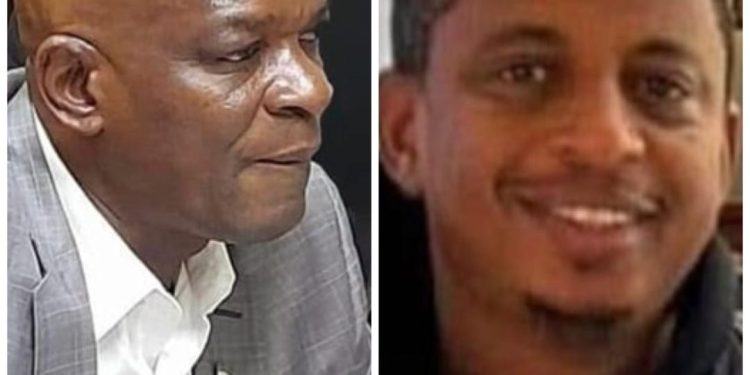By Mackie M. Jalloh
The cocaine trafficking scandal that has engulfed Sierra Leone has taken a dramatic turn, with Guinea declaring Sierra Leone’s Ambassador to the country, Alimamy Bangura, persona non grata. The Guinean government has ordered Ambassador Bangura to leave its territory, a decision that starkly contradicts statements from Sierra Leone’s Ministry of Foreign Affairs. The Ministry claimed that the ambassador had been “urgently summoned” for consultations, raising questions about the Sierra Leonean government’s transparency and intentions in handling this crisis.
At the heart of the scandal lies businessman Alhaji Bah, a prominent estate mogul with deep political ties. Bah’s name surfaced after his close associate and alleged “blue-eyed boy,” Alphajoh Bah, was arrested in Guinea. Alphajoh, also known as “Fresh,” was caught with the ambassador’s driver in a Sierra Leone Embassy utility vehicle carrying seven suitcases stuffed with cocaine. Alongside the drugs, authorities seized $100,000 in cash, further solidifying suspicions of an intricate, high-level trafficking network.
Guinean officials confirmed that the drugs were found concealed within the vehicle, raising alarming concerns about the misuse of diplomatic immunity and resources in facilitating international drug trafficking. The scandal threatens to undermine Sierra Leone’s credibility on the global stage, exposing the country to scrutiny for its inability—or unwillingness—to address such egregious criminal activity.
Despite the overwhelming evidence implicating Alhaji Bah in this cocaine operation, the Sierra Leonean government has been conspicuously silent on his role. Bah’s political connections appear to shield him from accountability. Sources in Guinea allege that Bah has close ties to influential figures in Sierra Leone’s government, allowing him to operate with impunity.
The Sierra Leone Police have yet to take action against Bah, despite his direct link to the scandal. This lack of enforcement raises questions about the government’s commitment to justice. Instead of confronting the issue head-on, authorities have remained evasive, refusing to even confirm the identity of the second individual linked to the case.
This silence has fueled speculation that Alhaji Bah may leverage his extensive political network to evade justice entirely. There are growing fears that he could flee Sierra Leone, leaving the country’s reputation further tarnished while victims of his illicit operations face the consequences.
The involvement of the Sierra Leone Embassy in Guinea adds another layer of controversy. Ambassador Alimamy Bangura, whose diplomatic status has now been revoked by Guinea, is at the center of scrutiny. While the ambassador denies any involvement, his failure to prevent the misuse of an embassy vehicle for drug trafficking raises serious questions about his competence and oversight.
Guinea’s decision to declare Ambassador Bangura persona non grata reflects its frustration with the Sierra Leonean government’s handling of the situation. It also serves as a pointed message that diplomatic immunity cannot be exploited to facilitate international crime.
This scandal highlights systemic failures within Sierra Leone’s governance and law enforcement. The unwillingness to prosecute Alhaji Bah demonstrates the influence of political elites in shielding their allies from the law. It also exposes a broader culture of impunity where those with wealth and connections remain untouchable, while the country’s institutions are weakened by corruption.
Civil society organizations and the international community must demand accountability. Sierra Leone cannot afford to be perceived as a safe haven for criminal activity, particularly when it involves such high-profile figures and the misuse of state resources.
The cocaine trafficking scandal involving Alhaji Bah and the Sierra Leone Embassy in Guinea is more than a criminal case—it is a damning indictment of a government that prioritizes political alliances over justice. As long as Alhaji Bah and his network remain protected, Sierra Leone risks further damage to its reputation and trust in its institutions.
This case is a test of the government’s integrity. Will it take decisive action to uphold the rule of law, or will it continue to shield those who exploit their power for criminal gain? The world is watching, and the time for accountability is now.












